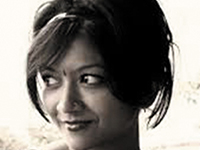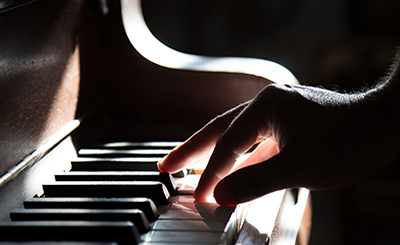
Self-portrait with easel, Amrita Shergill
Mrs. Khan wasn’t bothered by the subject of the painting so much as the drama that surrounded it. Her husband was not an extravagant man, but the day he brought the painting home, he was in a frenzy, knocking things over, first the vase, then the bowl of jasmines. He asked Mrs. Khan to clear the wall of framed photos, dusty relics from their past, their daughter’s birthday, lunch with parents, son’s graduation. She hurried to remove them for she feared he would throw them to the ground, he was so enthusiastic to clear the space.
Then in came two burly workmen, carrying the framed monstrosity. They propped the life-size portrait against the wall. Mrs. Khan was amused by the child-like excitement in her husband’s eyes. He was so mesmerised by the painting, he forgot about the workmen, and it was she who finally paid them and saw them to the door. She then turned on the fan to make the room comfortable for her husband and pulled up a seat next to him to admire the art.
It was the portrait of a woman in a forest, looking over her shoulders, contempt in her hazel eyes. The forest didn’t look tropical; the leaves ablaze with Western autumn. The woman, too, was not quite Bangladeshi. Despite her sari, she looked more like a Mem Sahib.
“I like the colours,” said Mrs. Khan. Mr. Khan grunted, eyes glued to the canvas. “Though it’s a bit bright,” Mrs. Khan continued. He grunted again, a hint of irritation.
Mrs. Khan was not an intrusive person, so she left Mr. Khan to his gazing. She had purchased a ten pound rui from the fish monger to prepare her husband’s favorite dish. She didn’t make it often. With all the bones to clean, it was a true labour of love, but, when she made it, he showered her with compliments.
As she lined the garlic up for her knife, the light above flickered and then blacked out entirely. She couldn’t reach the bulb and Mr. Khan, who was a foot taller than her, was probably in no mood to help her, engaged as he was with his new acquisition.
Mrs. Khan rummaged through the kitchen drawers till she found two sufficiently long candles so she could continue her culinary acrobatics by candlelight. She chopped, diced, sautéed, spiced, and finally, when she was satisfied, she called her maid to clean the mess.
The maid scratched her head lazily and asked if she should prepare rice.
“Yes, yes, of course,” said Mrs. Khan. “And stop scratching your head! Have you got lice?”
The maid nodded with a petulant smile.
“What? Why didn’t you tell me before?” Mrs. Khan rushed out of the kitchen for a quick bath before dinner.
Mr. Khan was usually hungry by nine, but when the clock struck ten and he still hadn’t emerged from the living room, Mrs. Khan had had enough. She barged into the room to find him dusting the painting, a silly grin on his face. At first she didn’t say anything, just stood next to him. Then she cleared her throat, but he still did not look up. Finally she announced, “Dinner!”
Mr. Khan reluctantly followed her to the dining room. Hastily he ladled fish and rice onto his plate and returned to the living room, without so much as washing his hands. In forty years of marriage, they had never eaten in the living room, but Mrs. Khan allowed him his eccentricity and joined him there, with her plate.
“Who’s the artist?” she asked, trying to make conversation.
“Nasreen.”
“Never heard of her.”
“How many artists do you know? She’s fresh out of art college.”
“How much did it cost?” Mrs. Khan asked, curious to know what a new artist could charge.
“Two lakhs,” Mr. Khan replied.
Mrs. Khan nearly choked on her fish. “What?” she exclaimed. Had she heard him wrong?
“Two lakhs,” he repeated, as if it were loose change. “It’s worth three times more,” he muttered blissfully. “Just look!”
Mrs. Khan was looking and she didn’t see how a painting by an unknown artist could cost that much, or, more importantly, how Mr. Khan had felt it appropriate to spend such a sum on a whim without even consulting her. They weren’t poor, but, with him now retired, they had little to live off, and a painting that costly meant dipping into their savings.
Page
Donate Now
More from The Byword
Comments
*Comments will be moderated











